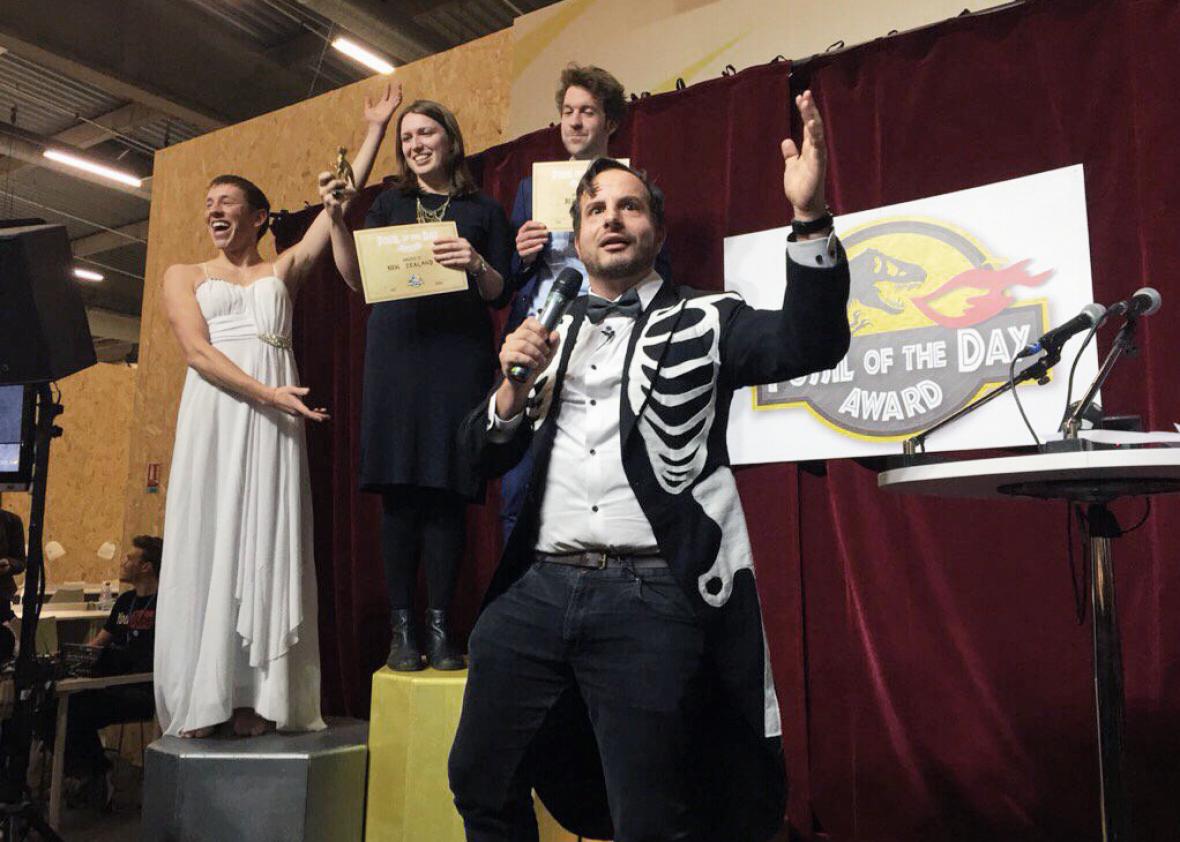When it comes to saving the planet, public humiliation can be surprisingly effective. Take the satirical Fossil of the Day award, which has a simple premise: Figure out who’s doing the best job at spoiling the Earth’s atmosphere that day, and make a huge deal about it in the most hilarious way possible.
The Fossil of the Day has been regularly awarded at climate talks since 1999, flamboyantly presented with a backdrop of a fire-breathing Jurassic Park logo. The awards ceremony has become an essential reprieve from the tedium of jargon and procedure of the climate meetings, and a crucial expression of the activist culture. It’s the best part of the international climate negotiations.
Despite being unabashedly fun, the Fossil of the Day also plays a key role in the negotiations by giving the recipient country’s press extra ammunition with which to question its leaders. Past awards have frequently gone to Canada, Japan, Australia, and the United States.
Here’s a preview of this year’s awards, which will be presented live each day by Al Jazeera’s lead satirist, Dan Ilic, and hosted by Climate Action Network, a worldwide collaboration of more than 950 environmentally focused nongovernmental organizations:
On Monday, which kicked off the Paris Climate Summit, Ilic proudly presented the first day’s awards to New Zealand in honor of its Prime Minister, John Key, who on Monday claimed his country was a leader in reducing subsidies for fossil fuels despite increasing subsidies sevenfold during his time in office. An award was also presented to Belgium, since its environment minister missed the train for the opening ceremonies in Paris.
I spoke with Ilic by phone shortly after the first awards of the Paris conference were presented. He briefly explained his role as master of ceremonies: “I get to poke fun at countries and organizations that are holding the whole world back. It’s great fun to shine a light on the hypocrisy that they’re bringing to this conference.”
Since this is Ilic’s first climate summit, he’s learning on the job. “The only thing I can liken it to is an Olympics,” he said. “We had about 300 press swarm us waiting for the show to start. Walking into this, I had no idea what a big deal it was.”
To select the Fossil of the Day, hundreds of activists gather and vote for their favorite. “It’s incredibly democratic, and everyone takes it insanely seriously,” Ilic said. “It’s my job to make as much fun of it as possible.”
But there’s actually an essential function being performed here. After more than 20 years of international negotiations, there’s still no legally binding framework that binds all countries to emissions reductions. Initiatives like Fossil of the Day fill a critical “naming and shaming” role, urging laggards to reform or risk further embarrassment.
